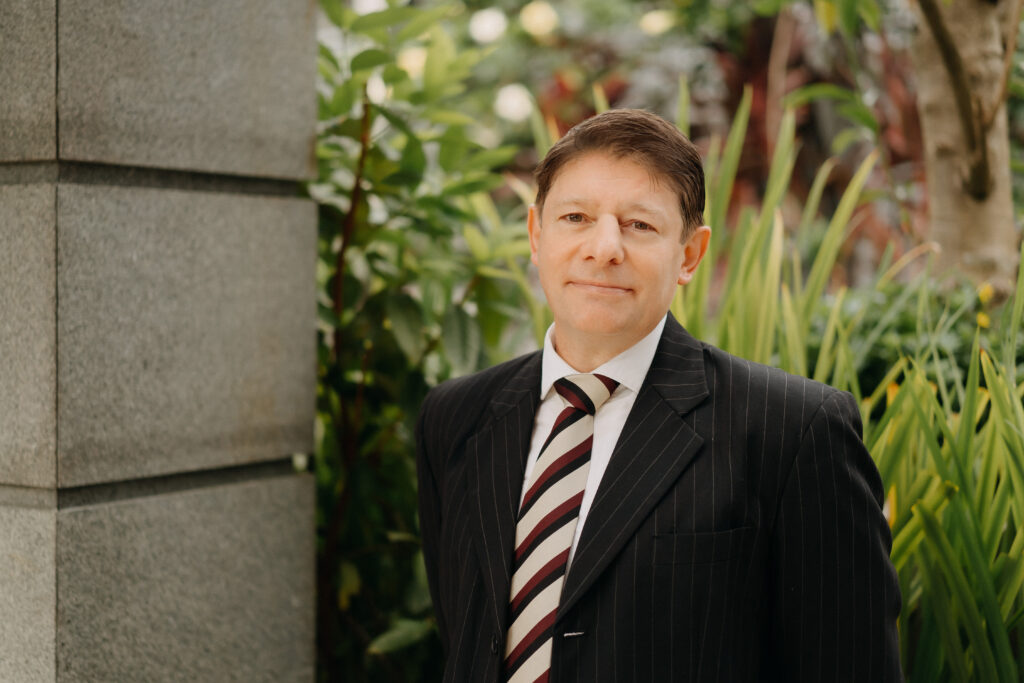Dr. Chris Hobbs’ ENT Insights: The Truth About Earwax And Why You Shouldn’t Clean Your Ears

Dr. Chris Hobbs, an experienced ENT specialist, shares insights into his journey in medicine, common conditions he treats, and his approach to patient care. Get to know more about Dr. Hobbs’ career, memorable moments, and tips for maintaining your ear, nose, and throat health.
What inspired you to specialize in ENT (Ear, Nose, and Throat) medicine?
I was inspired to specialise in ENT whilst training as a surgeon because all the ENT doctors that I met seemed quite relaxed and unstressed. In addition, I liked the fact that ENT specialists are surgeons and physicians rolled into one. As a result, we have the lowest operating ratio of all the surgical specialities (only 10-15% of our patients have surgery).
What do you find most rewarding about being an ENT specialist?
I think the diversity of ages that we see (from babies to the occasional 100-yr-old) and as a result, the huge variation in pathology that we have to consider, makes it a very interesting and intellectually rewarding specialty.
What are some of the most common ENT conditions you treat?
The commonest childhood problem we see is glue ear (otitis media with effusion) which occurs in children between the ages of 2-6 yrs old and can result in ear infections and/or temporary hearing loss. In adults, the commonest condition we see in Singapore is chronic allergic rhinitis (colloquially known as “sinus”), often due to house dust mite allergy which is prevalent in at least 25% of the population.
Can you share a memorable experience from your medical career?
I have lots of memorable experiences from my career in medicine but the highlight is probably the award of a Hunterian Lectureship from The Royal College of Surgeons of England, which I delivered at The Church House in Westminster, London in 2007. Still a trainee, I was obviously nervous but my parents attended, took me out to lunch and settled my nerves with a few drinks. This helped me get through the afternoon lecture and the questions without any issues!
What advice would you give to someone dealing with Swimmer’s ear?
Swimmer’s ear is an infection in the outer ear canal, which runs from your eardrum to the outside of your head. It’s very common in Singapore because of the humid climate and usually starts with water that remains in your ear, creating a moist environment that aids the growth of bacteria or fungus. My main advice for dealing with this is to get treatment early! As soon as you feel itching or discomfort in the ear, go to your GP or ENT specialist for the appropriate ear drops. Prevention is better than cure, so try to dry your ears after showering or swimming and never stick anything in your ears!
How do you stay up to date with the latest advancements in ENT care?
One of the good things to come out of the COVID pandemic was the change in acceptability of online meetings. This includes CME (Continuous Medical Education) lectures of which there are many that I can attend online either in my own hospital or outside. You can now even attend international meetings entirely online. Membership of various ENT societies both in Singapore and the UK also enables me to access more speciality specific resources online. There really is no excuse for not being up-to-date on the latest ENT advancements!
What is your approach to patient care and treatment?
I take a patient centred approach to medical care. A lot of our treatment (particularly surgery) is entirely optional. Once patients (or parents) have been armed with the latest up-to-date information and the risks of operating or not operating, it is up to them to decide on whether surgery is necessary or not.
Do you have any hobbies or interests outside of medicine?
I played a lot of rugby & cricket at school and university and still follow these sports passionately. Whilst my playing days in contact sport are over, I still play touch rugby which is a great way to get the oval ball in your hand without the trauma! And playing with youngsters more than half your age certainly keeps you fit!
What’s one thing you wish more patients knew about ENT health?
Please don’t try to clean your ears! Earwax is not a sign of poor hygiene. It is there for a purpose by acting as a natural moisturizer, preventing the skin inside the ear from becoming too dry, and trapping dirt and dust before it can get further down the canal, therefore preventing microorganisms from reaching the ear drum. Wax is also slightly acidic and contains an antimicrobial enzyme called lysozyme which helps prevent the growth of bacteria and fungus. So it is there for a reason, and only needs to be removed if it is completely blocking the ear and causing symptoms.
Any fun facts about ENT?
Humans are capable of detecting over 10,000 scents! We detect smell with special types of cells known as olfactory nerve cells. We have between 10-20 million of these in our noses, compared to dogs who have over 300 million!
Want to learn more about ENT health or book a consultation with Dr. Chris Hobbs? Contact us today and take the first step towards better ear, nose, and throat care!
Share this blog via:
